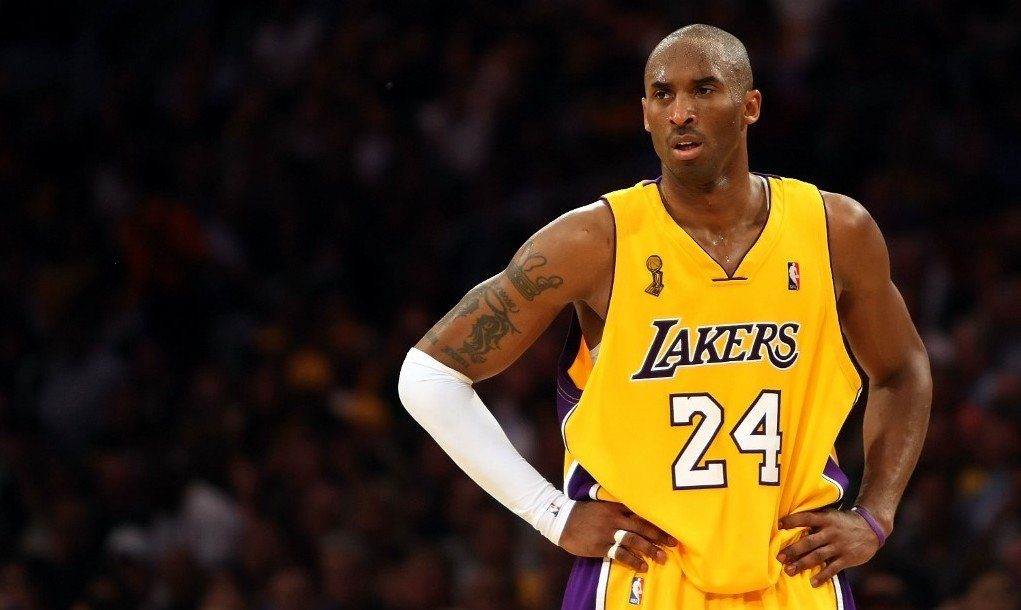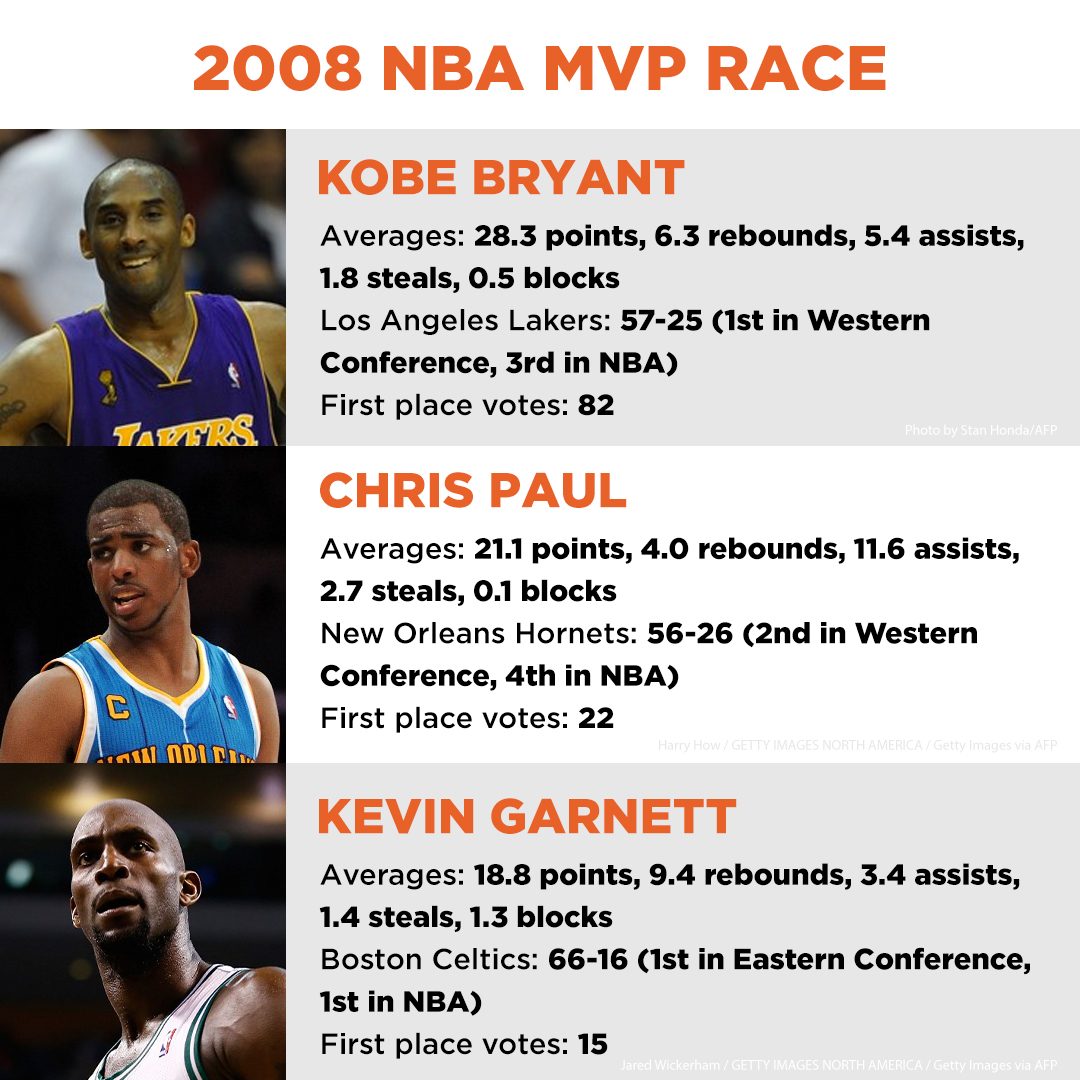SUMMARY
This is AI generated summarization, which may have errors. For context, always refer to the full article.

MANILA, Philippines – Throughout his NBA career, Kobe Bryant steadily rose to legendary status as one of the most relatable sports personalities in recent history.
He didn’t have the long hands of Michael Jordan nor the height of LeBron James, but his insanely rigid work ethic led him to 5 NBA championships, 2 Finals MVPs, 18 All-Star appearances, 11 All-NBA First Team citations, 9 All-Defensive First Team inclusions…
…and one league MVP award.
Yes, the face of the Los Angeles Lakers and the league epitome of individual success only has one Maurice Podoloff trophy to brag about, and his fellow Laker greats actually dwarf him in that category for comparison.
Kareem Abdul-Jabbar has an all-time record of 6 MVPs, James and Wilt Chamberlain have 4 each and Magic Johnson has 3.
Meanwhile, Bryant, a first-ballot Hall of Famer and the 4th all-time career scoring leader only reached the pinnacle of individual achievement in 2008. Never before. Never again.
Why is that so? Well, the year he won it would be a good place to start.
In 2008, at the ripe age of 29, Bryant ran away with the award over a then-22-year-old Chris Paul and Boston Celtics rival Kevin Garnett.

These 3 players accounted for all but one of the first place votes in that year’s MVP race. The last vote actually belonged to James, who at the time was just one year away from starting his legendary run of nabbing 4 MVP awards in 5 years.
James averaged an overall impressive line of 30 points, 7.9 rebounds, 7.2 assists, 1.8 steals and 1.1 blocks.
So why did he only get one vote?
As the graphic above shows, the 3 leading vote-getters significantly vary in individual stats, but one thing unites them: their respective team records.
Unfortunately for James, as impressive as his individual numbers may be, his Cleveland Cavaliers limped to a marginal 45-37 record, good for 13th in the NBA for that year.
This telling outcome for James is actually the reason why Bryant only won one MVP award.
In the prior year, Dallas Mavericks legend Dirk Nowitzki led his team to a franchise-best 67-15 record, good for 1st in both the West and the league overall. He got 83 first-place votes.
Hall of Famer point guard Steve Nash, fresh off consecutive MVP awards in 2005 and 2006, came in 2nd after leading the Phoenix Suns to a 61-21 slate, good for 2nd in the West and in the league. He got 44 first-place votes.
Bryant, who averaged 31.6 points, 5.7 rebounds, 5.4 assists and 1.4 steals, only led the Lakers to a 42-40 record, a 12th-place finish for the season.
Like James, Bryant’s individual stats are undoubtedly more impressive than Nowitzki’s and Nash’s, but his team record ultimately brought him down to a distant 3rd place in the MVP race. He had two first-place votes.
This trend was the most evident in 2006, when Nash won his second and final MVP award.
The genius floor general led Phoenix to a 54-28 record, good for 3rd in the West and 4th in the league overall. He averaged 18.8 points and 10.5 assists and got 57 first-place votes.
Meanwhile, Bryant had his best individual season in his career with eye-popping norms of 35.6 markers, 5.3 rebounds, 4.5 dimes and 1.8 steals.
That average was carried up by his famous 81-point game, the second-most points scored in a single game in NBA history, as well as 5 other 50+ point games for the year.
In January 2006 alone, he averaged video game numbers with 43.4 points, 5.6 rebounds and 4.1 assists on an efficient 47% clip. In that 13-game span, he had the 81-point game, two 50-point games and 3 40-point games.
He got 22 first-place votes. The Lakers finished 45-37, 10th in the league and 6th in the West.
In summary, yes, Kobe Bryant was, individually speaking, one of the most prolific superstars the league has ever seen.
However, through no fault of his own, the fact remains that the Lakers were minor threats as a fringe playoff team in the years Bryant performed a solo act.
He had his best years in the time between Shaquille O’Neal’s departure and Pau Gasol’s arrival, but it wasn’t enough to win more games and consequently, more voters.
Apparently for them, individual stats don’t really matter when the team doesn’t benefit in the long run.
Like the word “team,” there is no “I” in Most Valuable Player. – Rappler.com
Add a comment
How does this make you feel?
There are no comments yet. Add your comment to start the conversation.